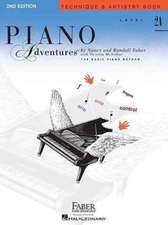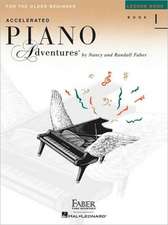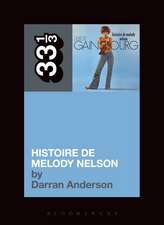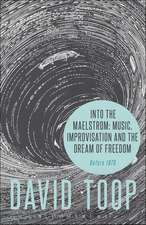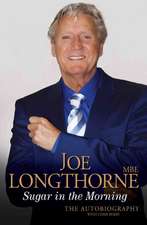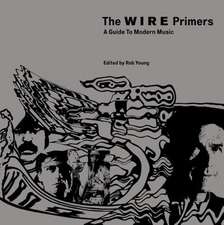The Late Voice: Time, Age and Experience in Popular Music
Autor Dr. Richard Elliotten Limba Engleză Paperback – 17 mai 2017
| Toate formatele și edițiile | Preț | Express |
|---|---|---|
| Paperback (1) | 258.42 lei 43-57 zile | |
| Bloomsbury Publishing – 17 mai 2017 | 258.42 lei 43-57 zile | |
| Hardback (1) | 833.06 lei 43-57 zile | |
| Bloomsbury Publishing – 21 oct 2015 | 833.06 lei 43-57 zile |
Preț: 258.42 lei
Preț vechi: 331.66 lei
-22% Nou
Puncte Express: 388
Preț estimativ în valută:
49.46€ • 53.75$ • 41.58£
49.46€ • 53.75$ • 41.58£
Carte tipărită la comandă
Livrare economică 21 aprilie-05 mai
Preluare comenzi: 021 569.72.76
Specificații
ISBN-13: 9781501332142
ISBN-10: 1501332147
Pagini: 296
Dimensiuni: 152 x 229 x 22 mm
Greutate: 0.41 kg
Ediția:NIPPOD
Editura: Bloomsbury Publishing
Colecția Bloomsbury Academic
Locul publicării:New York, United States
ISBN-10: 1501332147
Pagini: 296
Dimensiuni: 152 x 229 x 22 mm
Greutate: 0.41 kg
Ediția:NIPPOD
Editura: Bloomsbury Publishing
Colecția Bloomsbury Academic
Locul publicării:New York, United States
Caracteristici
This book is timely as more rock bands from the 60s/70s are planning sold-out revival tours
Notă biografică
Richard Elliott is Senior Lecturer in Music at Newcastle University, UK. He is the author of Fado and the Place of Longing (2010).
Cuprins
IntroductionChapter 1: Time, Age, Experience and VoiceChapter 2: Won't You Spare Me Over till Another Year? Ralph Stanley's Late VoiceChapter 3: September of My Years: Age and Experience in the Work of Frank Sinatra and Leonard CohenChapter 4: Time Out of Mind: Bob Dylan, Age and Those Same Distant PlacesChapter 5: Both Sides Now: Joni Mitchell, Neil Young and the Innocence and Experience of the Singer-SongwriterConclusion: Late ThoughtsBibliographyDiscographyFilmographyIndex
Recenzii
Elliott (popular music, Univ. of Sussex, UK) has written a complex analysis of 'the late voice' of a number of musicians. The first chapter, "Time, Age, Experience, and Voice," is analytical, drawing on numerous theoretical studies. In chapter 2, Elliot provides an interesting discussion of Ralph Stanley, known now for his performance of "O Death" in the film O Brother, Where Art Thou? (2000) but whose country music recording career began in the 1940s. Elliott places Stanley within the southern musical tradition of 'cultural isolation that preserved the old ways and the old songs and that projected the region onto the national imaginary as a place of backwardness.' Subsequent chapters discuss a variety of performers -Frank Sinatra, Leonard Cohen, Bob Dylan, Joni Mitchell, Neil Young, Judy Collins-focusing on the substance and meaning of their songs and providing some biographical background. In his conclusion, Elliott writes that his aim in writing the book was 'not so much to remove value from the metaphysics of age but to locate it at various points in the life course.' Summing Up: Recommended. Upper-division undergraduates through faculty.
Engagingly written, carefully thought through, and characterised by exemplary scholarship, Richard Elliott's book navigates with great elegance some complex theoretical waters. Through a selection of rich case studies, Elliott offers a powerful contribution to a growing body of work on ageing, nostalgia, and memory, particularly in relation to music.
This thoughtful intervention to the interdisciplinary area of popular music and ageing brings sustained critical attention to the aesthetic concerns of the 'late voice' by offering a range of distinctive case studies of singers, songwriters and songs. The result is an impressive synthesis of theory and analysis that bridges popular music studies and traditional musicology as an approach to understand music, ageing and experience.
Through a series of illuminating case studies of particular singers, Richard Elliott shows how age, memory, temporal distance and loss are displayed in vocal quality as well as lyrical content. This is an original book: theoretically informed, and full of insight into the process of assimilating and evaluating what time, age and experience bring to us, it breaks new ground in studies of popular music, and deserves to be widely read.
Engagingly written, carefully thought through, and characterised by exemplary scholarship, Richard Elliott's book navigates with great elegance some complex theoretical waters. Through a selection of rich case studies, Elliott offers a powerful contribution to a growing body of work on ageing, nostalgia, and memory, particularly in relation to music.
This thoughtful intervention to the interdisciplinary area of popular music and ageing brings sustained critical attention to the aesthetic concerns of the 'late voice' by offering a range of distinctive case studies of singers, songwriters and songs. The result is an impressive synthesis of theory and analysis that bridges popular music studies and traditional musicology as an approach to understand music, ageing and experience.
Through a series of illuminating case studies of particular singers, Richard Elliott shows how age, memory, temporal distance and loss are displayed in vocal quality as well as lyrical content. This is an original book: theoretically informed, and full of insight into the process of assimilating and evaluating what time, age and experience bring to us, it breaks new ground in studies of popular music, and deserves to be widely read.















